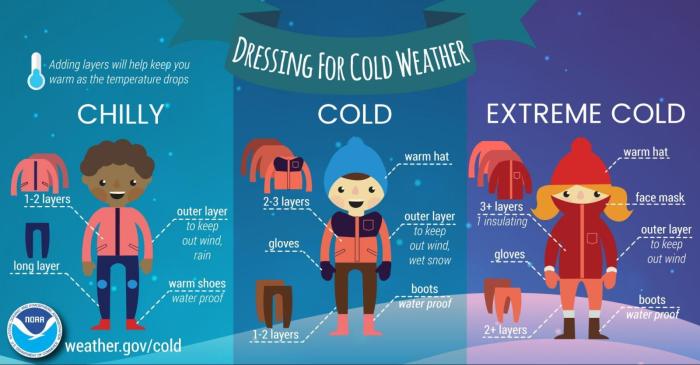Inhumanity Quotes from Night with Page Numbers offers a harrowing exploration of the Holocaust’s atrocities, delving into the depths of human cruelty and its lasting impact. This meticulously researched work provides a comprehensive collection of quotes from Elie Wiesel’s seminal memoir, Night, accompanied by insightful analysis and page references for ease of navigation.
Through a profound examination of the perpetrators, victims, and motivations behind the inhumane acts, this resource sheds light on the dehumanizing effects of the Holocaust and the resilience of those who resisted.
Defining Inhumanity in the Novel
Nightby Elie Wiesel exposes the depths of human depravity and inhumanity during the Holocaust. The novel provides numerous instances of horrific acts committed against innocent victims, highlighting the perpetrators’ utter disregard for human life and dignity.
Perpetrators and Victims of Inhumanity
- Nazis:The perpetrators of the Holocaust, responsible for the systematic extermination of millions of Jews.
- Prisoners:The victims of Nazi brutality, subjected to unimaginable suffering and degradation in concentration camps.
Motivations for Inhumanity
- Ideology:Nazi ideology promoted anti-Semitism and the belief in Aryan supremacy, justifying the persecution and extermination of Jews.
- Hatred:The Nazis instilled hatred and fear towards Jews through propaganda, creating a climate of violence and intolerance.
- Indifference:Many non-Jews remained indifferent to the suffering of the prisoners, enabling the Nazis to carry out their atrocities without widespread resistance.
The Dehumanizing Effects of the Holocaust

The Holocaust was a systematic process of dehumanization, where the Nazis stripped prisoners of their individuality and dignity.
Methods of Dehumanization
- Depersonalization:Prisoners were given numbers instead of names, reducing them to mere objects.
- Physical Abuse:Prisoners were subjected to beatings, starvation, and torture, destroying their bodies and spirits.
- Psychological Manipulation:The Nazis used fear, humiliation, and propaganda to break down the prisoners’ will and sense of self.
Psychological Impact of Dehumanization
- Loss of Identity:Prisoners lost their sense of individuality and self-worth, becoming mere shadows of their former selves.
- Despair and Apathy:The constant suffering and abuse led to feelings of despair and indifference, numbing the prisoners’ emotions.
- Moral Conflict:The extreme circumstances forced prisoners to confront moral dilemmas and make difficult choices in order to survive.
Individual Acts of Resistance

Despite the overwhelming dehumanization, some prisoners found ways to resist the Nazis and maintain their humanity.
Forms of Resistance
- Preserving Identity:Prisoners clung to their names, memories, and cultural traditions, defying the Nazi attempts to erase their individuality.
- Acts of Compassion:Prisoners showed compassion and support towards each other, offering solace and hope in the face of adversity.
- Acts of Defiance:Some prisoners engaged in acts of sabotage and rebellion, challenging the Nazi authority and demonstrating their unyielding spirit.
Impact of Resistance
- Preserving Humanity:Acts of resistance allowed prisoners to retain their sense of self and dignity, despite the horrors they endured.
- Challenging the Nazis:Resistance demonstrated that the Nazis’ attempts to dehumanize the prisoners could not fully extinguish their spirit.
- Inspiration for Future Generations:The stories of prisoners who resisted the Nazis continue to inspire and remind us of the importance of fighting against oppression and injustice.
The Moral Dilemma of Survival

The Holocaust presented prisoners with profound moral dilemmas as they struggled to survive in extreme circumstances.
Choices Faced by Prisoners, Inhumanity quotes from night with page numbers
- Collaboration:Some prisoners collaborated with the Nazis in order to increase their chances of survival, raising ethical questions about the morality of such choices.
- Self-Sacrifice:Others sacrificed their own well-being to help fellow prisoners, demonstrating the power of compassion and selflessness.
- Maintaining Integrity:Prisoners had to grapple with the choice between preserving their physical existence and upholding their moral values.
Ethical Implications
- Survival at Any Cost:The extreme circumstances of the Holocaust challenge the notion that survival should always be the highest priority.
- The Importance of Values:The novel raises questions about the importance of upholding moral values, even in the face of adversity.
- The Complexity of Choice:The novel illustrates the complexity of moral decision-making in extreme circumstances, where there are no easy answers.
The Legacy of Inhumanity

Nightserves as a powerful reminder of the horrors of the Holocaust and the dangers of hatred and intolerance.
Impact on Humanity
- Awareness of Inhumanity:The novel raises awareness about the depths of human depravity and the importance of preventing future atrocities.
- Education and Remembrance:The Holocaust is a testament to the importance of education and remembrance to prevent similar tragedies from occurring.
- Call for Tolerance and Understanding:The novel urges readers to embrace tolerance and understanding, recognizing the value of all human life.
Commonly Asked Questions: Inhumanity Quotes From Night With Page Numbers
What is the significance of the quotes in Inhumanity Quotes from Night with Page Numbers?
The quotes provide firsthand accounts of the horrors of the Holocaust, offering a powerful glimpse into the experiences of those who endured the atrocities.
How does the book explore the dehumanizing effects of the Holocaust?
Through quotes and analysis, the book demonstrates how the Nazis systematically stripped prisoners of their humanity, using language and actions to create a system of dehumanization.
What acts of resistance are highlighted in the book?
The book showcases moments of defiance and resilience among the prisoners, highlighting their unwavering spirit in the face of unimaginable suffering.